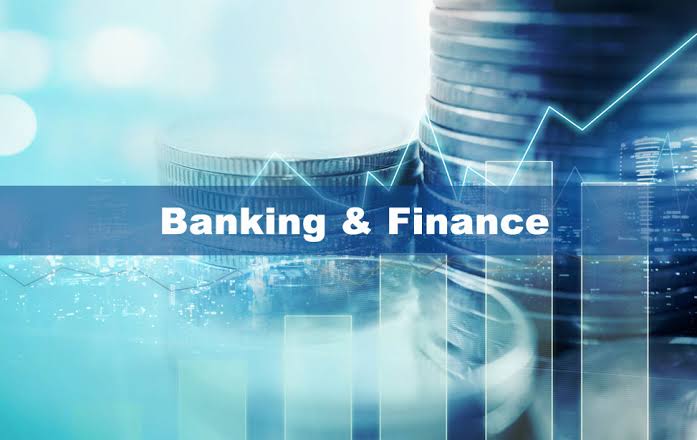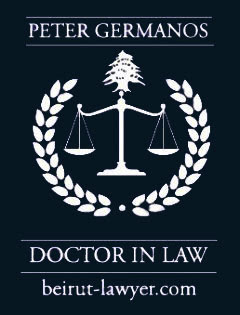
Banking and finance
For nearly two years now, Lebanon has been assailed by compounded crises—specifically, an economic and financial crisis, followed by COVID-19 and, lastly, the explosion at the Port of Beirut on August 4, 2020.
Of the three, the economic crisis has had by far the largest (and most persistent) negative impact. The Spring 2021 Lebanon Economic Monitor finds that Lebanon economic and financial crisis is likely to rank in the top 10, possibly top three, most severe crises episodes globally since the mid-nineteenth century. In fact, Lebanon’s GDP plummeted from about US$55 billion in 2018 to a projected US$20.5 billion in 2021, while real GDP per capita fell by 37.1 percent. Such a brutal contraction is usually associated with conflicts or wars.
The banking sector, which informally adopted strict capital controls, has ceased lending and does not attract deposits. Instead, it endures in a segmented payment system that distinguishes between older (pre‐October 2019) dollar deposits and minimum new inflows of “fresh dollars.” The former is subject to sharp deleveraging through de facto lirafication and haircuts (up to 85% on dollar deposits). The burden of the ongoing adjustment and deleveraging is highly regressive, falling hardest on smaller depositors and Small and Medium Enterprises (SMEs). The Lebanese lira (LBP) continues to lose value as inflation rates remain in the triple digits. Inflationary effects are highly regressive factors, disproportionately affecting the poor and middle class. The social impact, already dire, could become catastrophic; more than half the country’s population is likely below the poverty line. Like poverty, unemployment is on the rise. Lebanon has witnessed a dramatic collapse in basic services, driven by depleting foreign exchange (FX) reserves and the high cost of the FX import subsidies on food, fuel and medication. Acute shortages of fuel have led to severe electricity blackouts across the country, Further, medication is in severe shortage, while health services have suffered heavily.
Lebanon has also been dealing with the COVID-19 pandemic through intermittent lockdowns and other measures to mitigate the impact of the virus both on people and the already weak health system. Vaccination, launched on February 14 with initial financing from the World Bank, is progressing according to the National COVID-19 Deployment and Vaccination Plan. This aims to vaccinate 70% of the total population, citizens and non-citizens in a multi-phase rollout by the end of 2022. Efforts are underway to expand COVID-19 vaccination coverage and support vaccination deployment.
Beyond the human tragedy, the impact of the Port of Beirut explosion has had implications at the national level, despite its geographical concentration. These add to Lebanon’s long-term structural vulnerabilities, which include low-grade infrastructure—a dysfunctional electricity sector, water supply shortages, and inadequate solid waste and wastewater management—as well as weak public financial management, large macroeconomic imbalances, and deteriorating social indicators.
Immediately after the explosion, the World Bank Group, in cooperation with the United Nations (UN) and the European Union (EU), launched a Rapid Damage and Needs Assessment (RDNA) to estimate the impact of the blast on residents, physical assets, infrastructure and service delivery. The RDNA followed a “whole of Lebanon approach,” engaging public authorities, institutions and civil society organizations. The assessment found the value of damage was in the range of US$3.8 to US$4.6 billion, with losses to financial flows of US$2.9 to US$3.5 billion. The impact has been particularly severe in key sectors vital for growth, including finance, housing, tourism and commerce. Through to the end of 2021, the costs of recovery and reconstruction are expected to total US$1.8 to US$2.2 billion.
Building on the recommendations of the RDNA, in December 2020 the World Bank Group, EU and UN launched the Reform, Recovery and Reconstruction Framework (3RF) to address Lebanon’s immediate- and short-term needs. The 3RF outlines a costed, prioritized framework of actions needed to support recovery and reconstruction in Lebanon. Its aim is to “build back better” by adopting an integrated approach focused on people-centered recovery and preparing the ground for medium-term reconstruction, and on initiating key structural reforms based on the principles of transparency, inclusion, and accountability.
The Lebanon Financing Facility (LFF) was formally established on December 18, 2020 to kickstart the immediate socio-economic recovery of vulnerable populations and businesses affected by the explosion, and to support the Government of Lebanon in catalyzing reforms and preparing for medium-term recovery and reconstruction. The LFF will provide an important means to pool grant resources and strengthen the coherence and coordination of financing, in alignment with 3RF priorities. It will adopt flexible implementation modalities and strong fiduciary monitoring and oversight.
Building a better Lebanon requires swift and decisive action, particularly on reform. In the immediate term, Lebanon needs to adopt and implement a credible, comprehensive and coordinated macro-financial stability strategy within a medium-term, macro-fiscal framework. This strategy would be based on: (i) a debt restructuring program aimed at achieving debt sustainability over the medium-term; (ii) comprehensive restructuring of the financial sector toward regaining the solvency of the banking sector; (iii) new monetary policy framework aimed at regaining confidence in the exchange rate and its stability; (iv) phased fiscal adjustment aimed at regaining confidence in fiscal policy; (v) growth enhancing reforms; and (vi) enhanced social protection.
Over the medium-term, Lebanon has to prioritize building better institutions, as well as good governance and a better business environment, alongside physical reconstruction. However, given Lebanon’s state of insolvency (sovereign, banking system) and its lack of sufficient foreign exchange reserves, international aid and private investment will be essential to its recovery. The extent and speed to which aid and investments are mobilized will depend on whether the authorities and the Lebanese Parliament can act swiftly on the much-needed fiscal, financial, social and governance reforms. Without these, recovery and reconstruction cannot be sustainable, and the social and economic situation will continue to worsen.
The World Bank in Lebanon
Last Updated: Oct 17, 2021
Code of Money and Credit
http://www.databank.com.lb

